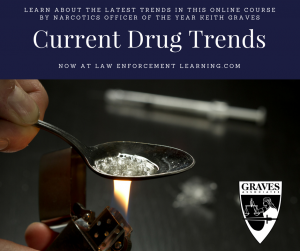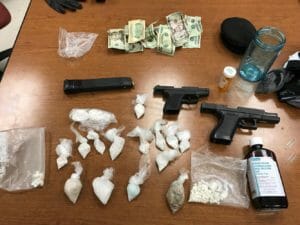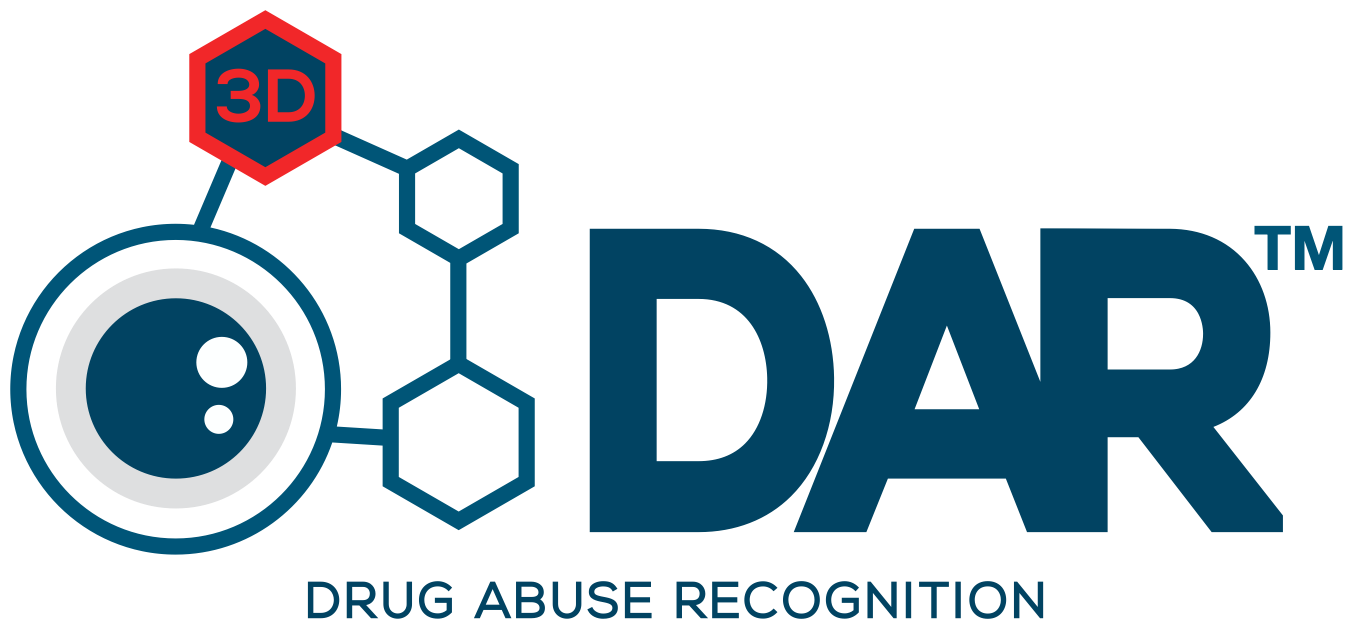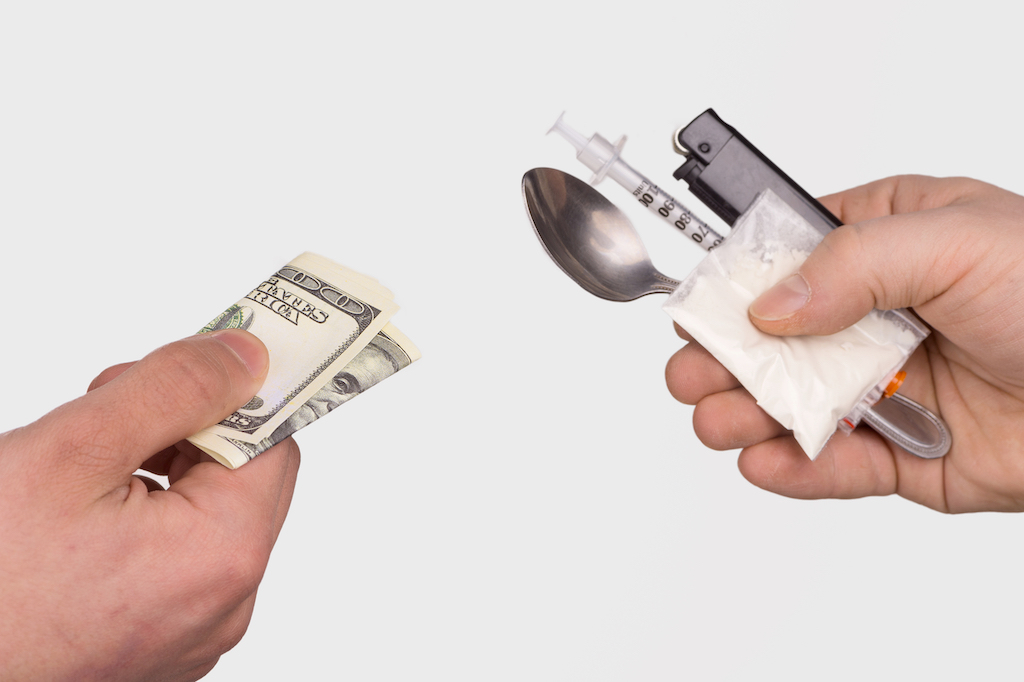Many times, when I talk to younger officers about what makes a “simple possession” versus “a possession for sale” case, they get too hung up on the fact that the suspect was only possessing drugs in a single bag. Many think because there is no evidence of packaging materials, scales, text messages and pay/owe sheets that the individual is just possessing the controlled substance for personal use.
I’d like to take this time to explain to you how easy it can be to explain in your report narrative how persons who possess controlled substances by themselves (without scales, packaging material or text messages or pay/owe sheets) can be arrested for possession for sales. This articulation must be done in a clear and concise manner in your arrest report and then, potentially, on the stand when you testify to the reasons why you arrested somebody for possession for sales of a controlled substance solely based off the weight of the drug they were possessing.
Know the dosage units for each drug
Before we move any further, I think it’s important for us to discuss what exactly is considered a dosage of a drug for personal use.
In my decade and a half as a peace officer I have spoken with thousands of persons who use and abuse controlled substances. Typically, a person will describe a single dosage of a controlled substance as that being what we need to get that person “high” and/or feel the effects of the drug in their body for a period of time.
Let’s use methamphetamine as our example. At the 2010 California Narcotic Officers’ Association Conference in Anaheim I attended a class called “Methamphetamine-The Dopamine Blues.” During the class the instructor informed his students that 0.01 of a gram of meth was enough for someone to feel the effects of the drug. Now, I understand that is not a lot. Typically, we see individuals who use and abuse drugs (meth, cocaine and Heroin) describe a single dosage as being approximately 0.25 grams give or take. A person could feel the effects of the meth from that dose for several hours. Some users describe their “high” lasting 12 hours or more.
One gram could have four to five dosages in it and could keep someone high for multiple days. Someone who possesses one gram of meth could have enough of the drug to last him four to five days. Using that math, a person who possesses an “eight-ball” of meth, or 3.5 grams, would have enough of the drug to last him almost three weeks. Let’s go a little further now. Based on weight alone and what we know about usage rates, it is my belief that a person who is possessing 3.5 grams of meth would possess the drug for sales.
The daily usage amounts of Heroin and cocaine are like that of meth. The amounts of marijuana usage daily will be a little higher than meth, cocaine and Heroin. It has been my experience over the years as I’ve talked with hundreds of pot smokers that the average marijuana user uses about two grams of marijuana per day.
Understand how dealers and users act
Users will also not want to have large amounts of drugs on their person because: (1) they do not want to be hit up by their other addict friends or potentially be robbed for their drugs; (2) they don’t want to get arrested for possession for sales of a controlled substance because it is a felony; (3) they (the addict) do not have the willpower, self-control or money to possess large amounts of controlled substances on their person at any given time; and (4) they will only possess what is needed for them to get their next fix.
An analogy I would use to describe the difference between possession and possession for sales of a controlled substance as it pertains to an addict versus a drug dealer is:
If I am going to the grocery store to buy groceries for my family for the week I will go to the ATM and take out just the amount of money I need to afford the groceries. For example, if I believe the groceries are going to cost $100 I will withdraw that amount of money from the ATM. I will not withdraw my entire checking and savings accounts to take to the store just to buy the groceries. I only take out that what is needed for me to afford the groceries. An addict only possesses what they need to get “high” (the $100 to pay for the groceries), while drug dealers possess larger amounts of drugs (the entire checking/saving account).

the Costco defense
Over the years I’ve also heard defense attorneys attempt to say that if a person buys drugs in bulk they can “get more bang for their buck” or spend less money when buying in bulk. I call this the “Costco defense.” The defense attorney is saying the reason that his or her client is possessing a large amount of a controlled substance is because it was cheaper for them to buy a lot at one time and that is why their client, who is just an addict, had a large amount of drugs on their person.

Also, I have heard many defense attorneys say something to the effect of, “If my client was a drug dealer he would have a scale, packing materials, etc. on him.” My reply to this is that drug dealers are in the business of selling drugs. They do not need a scale to conduct their drug business. This is what they do for a living. They are so well-versed in their profession that they can recognize by sight how much dope they need to supply to their customers. A drug dealer has the option of, if they so choose, to give their customers a little bit more or a bit less of any amount of drug they are selling. Remember, a drug dealer does not need scales, packaging material or pay/owe sheets to sell drugs. A drug dealer can possess drugs for sales solely based off the amount of drugs they have on their person. There is no oversight or regulations that are put in place to keep the dealers honest. They are their own bosses and conduct business how they want. A person just possessing five or six grams of meth, Heroin or cocaine in one individual bag has enough drugs to last the average user almost four weeks. Again, no addict possesses that much drugs on them for personal use.
Another way the defense may attempt to combat your possession for sales case is to say that his or her client, the defendant, is a heavy drug user and that all the drugs found were for his or her personal use.
Ask questions
At the time of your contact with the suspect, take a few extra minutes to ask some specific questions regarding the suspect’s potential drug use. Questions you may want to ask are:
1) How much do you use in one day?
2) What is your preferred method of use?
3) How long do you feel the effects of the drug you’ve used?
4) When was the last time you used or got “high?”
5) Normally, how much do you buy at one time? How much do you pay for that?
The price someone pays for drugs can be important. Typically, addicts will pay a little more for their dope because they buy in smaller amounts, whereas a dealer buys in bulk and pays a discounted price because he/she buys at wholesale prices. The key is knowing the difference between “street prices” and “wholesale prices”. Ask your local narc cops for the current prices of drugs in your area. In asking these specific questions and others like them you can attempt to determine and/or eliminate the potential that the person you’re contacting is either a heavy drug user or a drug dealer.
Also, in conducting your investigation in the field look to determine if your suspect is potentially under the influence of a controlled substance. A quick evaluation to determine if there are objective signs and symptoms of intoxication will go a long way when it comes to writing a report and testifying in court.
Addicts are just that, addicts, and need to be under the influence of a controlled substance as much as possible for them to feel “right.” Drug dealers are normally not addicts or heavy drug users. The bottom line is…using your own product is terrible for business.
When it comes to your reports, I would encourage you to take five or ten extra minutes to articulate why you believe your suspect is possessing his/her drugs for sales and not just for personal use. Taking the time to write it in your narrative will save you a lot of hassle later, especially when it comes to a defense attorney attempting to cross-examine you regarding why you arrested the defendant for the felony section. Your first couple of narratives may take some time, but once you have a few under your belt, they will flow smooth and fast.
Also, consult with your local DDAs to see what they expect and what they’re looking for in possession for sales cases.
I’d like to take this time to thank Glenn Walsh, Rick Dooley, Russ Williams and Eduardo “Q” Quirarte for their advice while writing this article and the California Narcotic Officers’ Association for allowing me the opportunity to voice my opinion and assist in the education of its members through articles such as this. Take care my friends and stay safe.



great read.